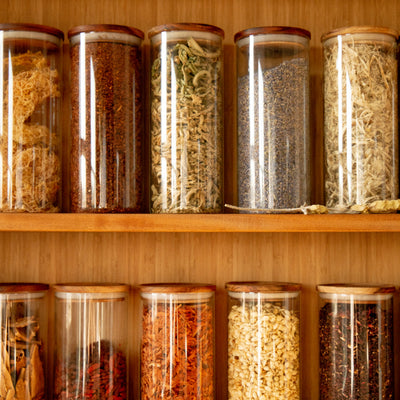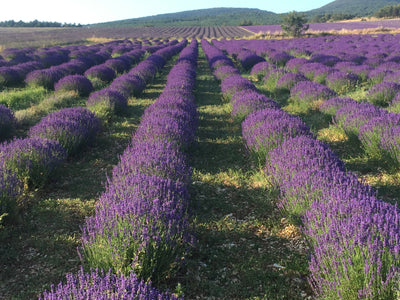Why stay chill?
When we constantly have something on our mind or plate, our body enters fight or flight mode. We become alert, ready to respond, and are prepared for whatever life throws our way. This can come in handy when, say, the person in charge of the turkey for the potluck bails at the last minute and you need to find a solution. When it doesn’t come in handy is when it’s time for bed and your mind is still racing.
Just like there’s a time and place for alert mode, there needs to be a time for chill out mode. Physiologically, this mode is called rest and digest. The rest and digest system is our parasympathetic nervous system, which is responsible for recovering, optimal sleep, proper digestion, immune health, respiration, and more. Just from that quick list it’s easy to see how important it is to enter this state of rest and digest.
4 Herbs to Help You Stay Chill
We’ve compiled some of our favorite herbs to bliss out with. Give them each a try and find which ones feel good to you. Then, use them to create relaxation routines of your own!
Chamomile
Chamomile’s most common application is to ease gut tension, which improves digestion and assimilation after meals. The antispasmodic action can help when tension turns to pain as with excess gas, bloating, cramps, or colic, and it can even help with menstrual discomfort. Chamomile is anti-inflammatory and cooling thanks to some of the hundred-plus constituents in chamomile flowers and their essential oils. This effect helps cool the GI tract after digestion and reset it for the next meal. Chamomile is a must for any overt inflammatory or acidic conditions. Its gentle relaxing action extends beyond the gut to the whole body, including the mind. Chamomile is effective at easing anxiety without making you feel overly dull, heavy, or lethargic. Its antimicrobial effects help ease aches and pains from colds and flu while helping bouts of illness resolve more quickly.
Chamomile can be consumed often and calibrated to suit our needs. Consider small amounts throughout the day to consistently siphon off excess stress that ultimately becomes accumulated tension. Consumed during the day, chamomile will ease tension while leaving you alert and available. Drinking chamomile at night will contribute to easeful, restful sleep, like giving your nervous system a teddy bear.
Lavender
Lavender’s uplifting fragrance and dazzling color elevates the mind and soul, washing away negativity and bad vibes and replacing them with good ones. It’s useful for relieving tension in the musculature, including tension headaches. Lavender is highly anti-inflammatory and thus cooling to an overheated GI tract, as well as the agitated states of mind that come with frustration, anger, and impatience. Lavender simultaneously elevates depressive moods or calms anxious ones. It is beneficial to increase calm in the evenings and ease our way toward restful sleep—a nice one to have on the bedside table for a few deep palm inhalations at bedtime. Consuming lavender relaxes the enteric nerves and muscles of the GI tract. After a meal, its relaxing, antispasmodic action makes space for better digestion and assimilation.
Lemon Balm
Passionflower


